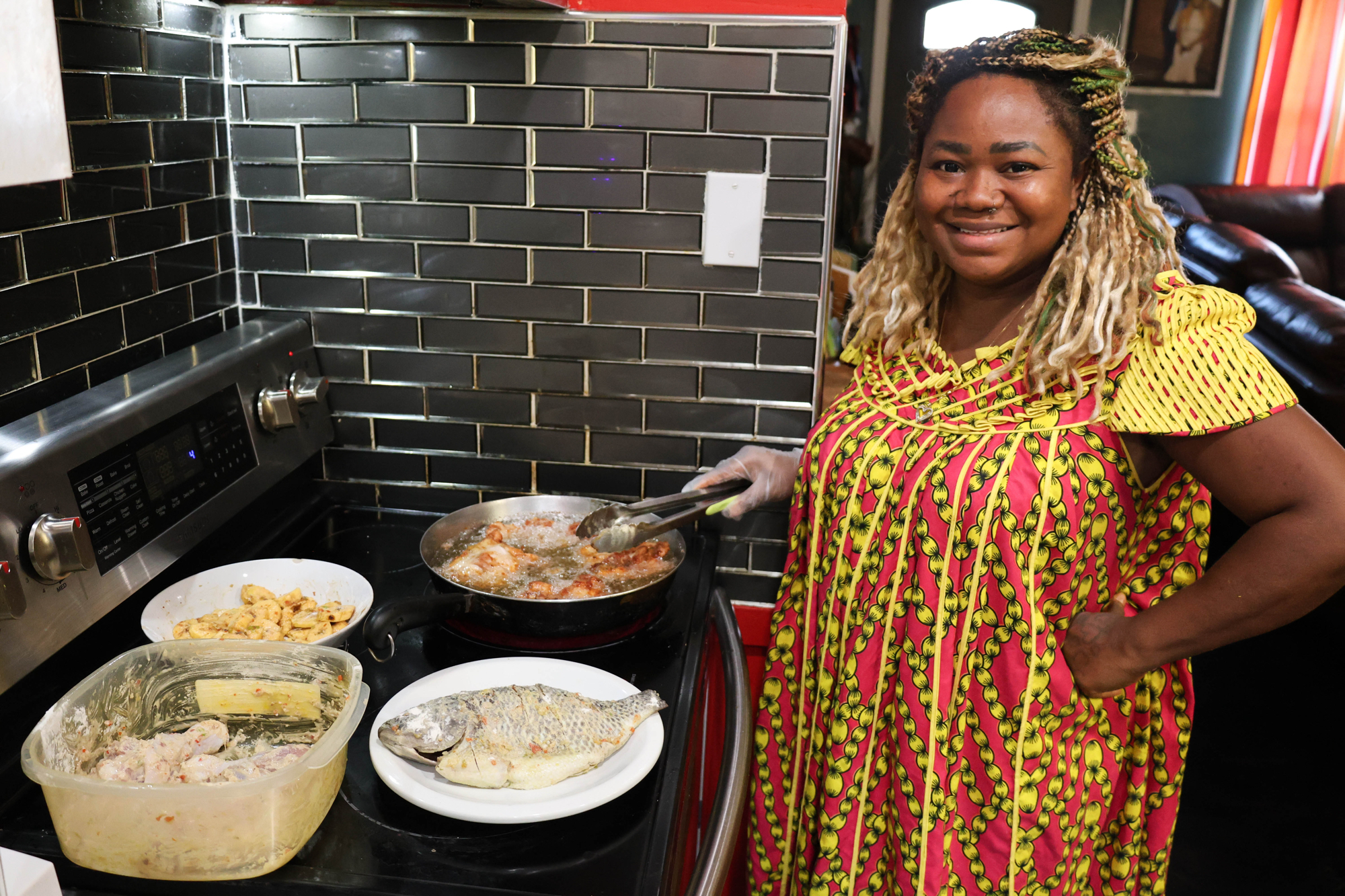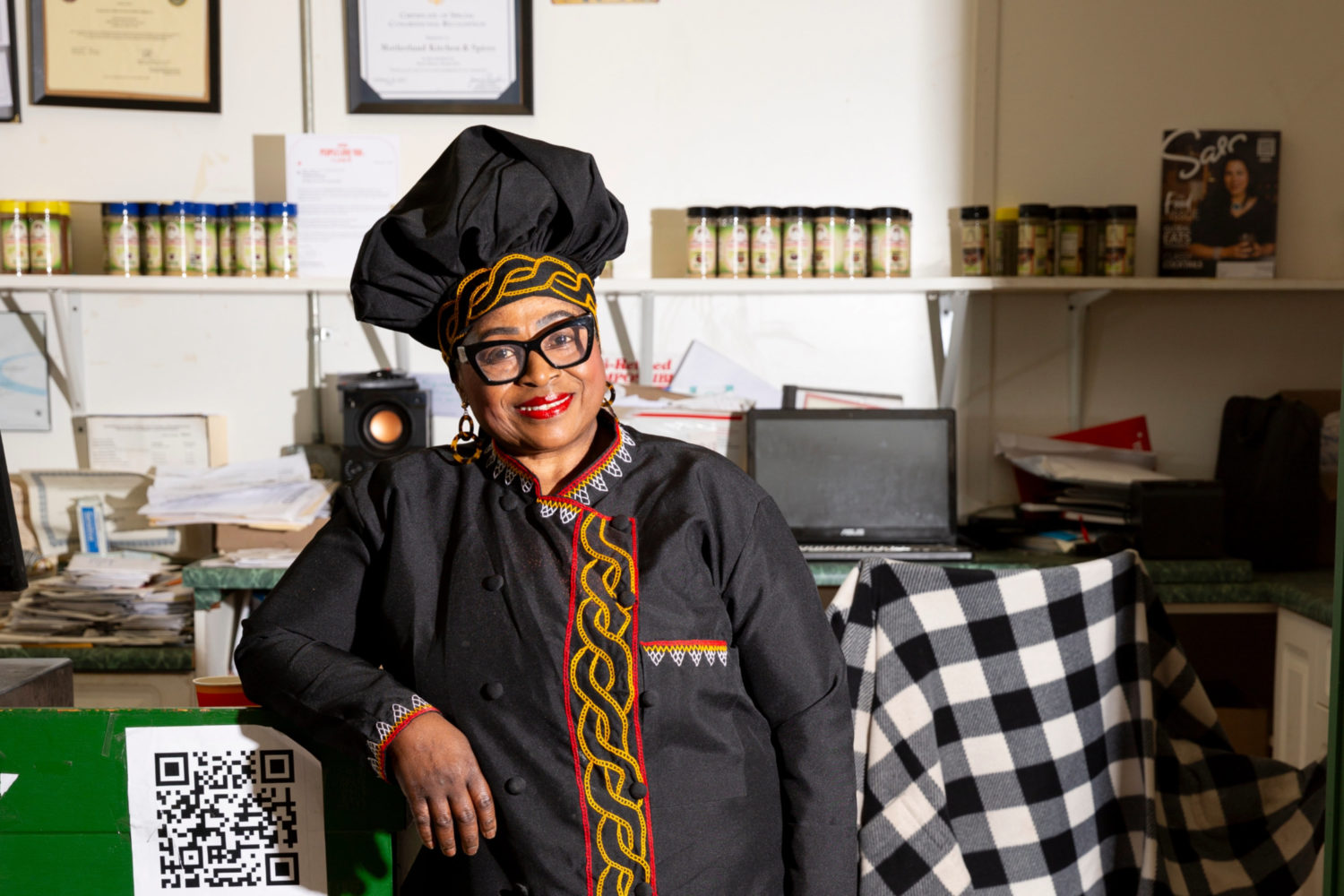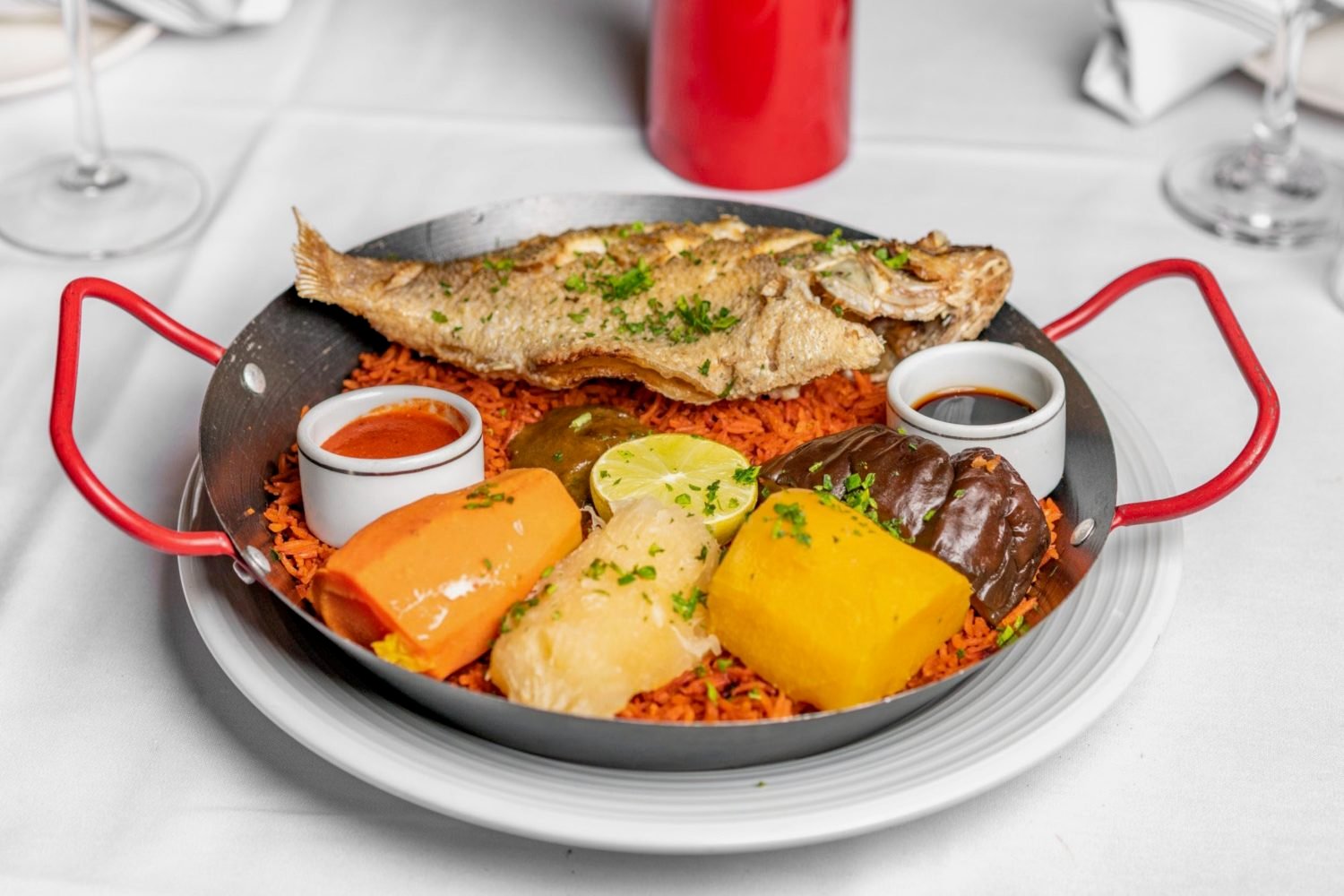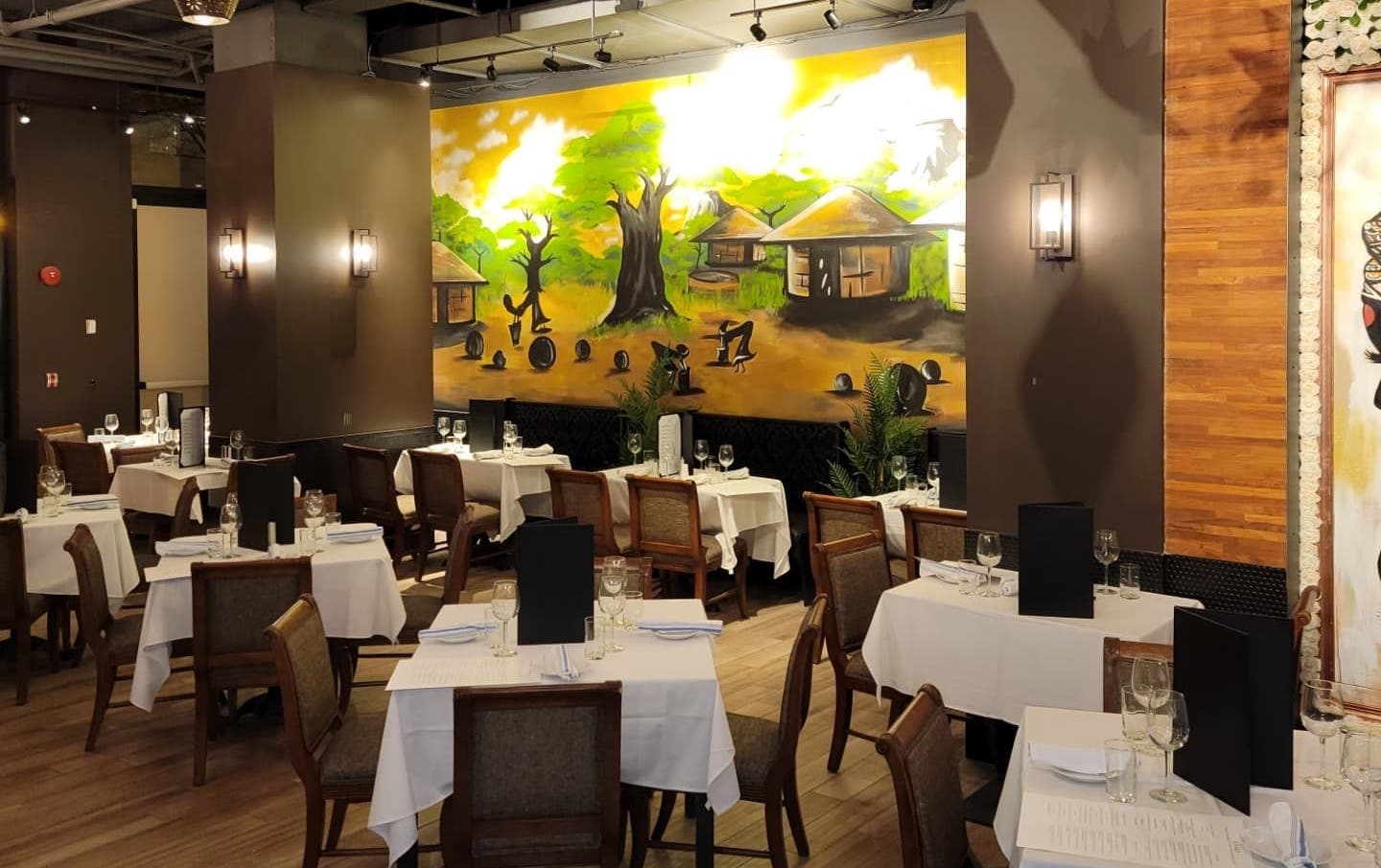Attia’s Kitchen Liberian Takeaway
language @attiaskitchen
240-217-7024
location_on 9407 New Hampshire Ave., Silver Spring
If you call Joyce Attia ahead of time, she’ll walk you through the basics of Liberian cuisine, which she serves at her home-based carryout, Attia’s Kitchen. First, she’ll ask about heat preferences. (Attia’s food can be outrageously spicy.) Then, if you’re unfamiliar, she’ll explain dishes such as kittley toborgee—a meaty stew made with tiny pea eggplants—and attieke, or grated cassava.
Once you’ve placed an order by phone, pull up in front of Attia’s white brick house on busy New Hampshire Avenue in Silver Spring. The chef will quickly emerge with your order, and you’ll cede the parking spot to the next driver waiting for their jollof rice and okra sauce.
If you’ve never had Liberian food before—it’s a rarity around here—the cuisine is a history lesson in itself. The tiny nation’s cooking is a product of ancient West African traditions, the transatlantic slave trade, and the 19th-century repatriation movement that led to Liberia’s colonization by Black Americans.
Attia—who has roots in both the Bassa ethnic group and the Americo-Liberian community—serves traditional “native” dishes like fried cassava leaves (buzzing with habanero heat) as well as Americo-Liberian foods with roots in the US South, such as collard greens and fried chicken.
During Attia’s childhood on Liberia’s central coast, food was often scarce, and among her earliest culinary memories are hikes to the swamp to catch fish and cook them in tin cans over a bonfire. “When you’re hungry,” she says, “you don’t wait to get your one meal a day at home.”
Attia fled Liberia in 1997, the same year warlord Charles Taylor took over the country, then settled with her family in Pennsylvania, which has a large concentration of Liberian Americans. Now a mother of seven, she spent ten years as a special-education teacher in Prince George’s County. When the pandemic closed schools, Attia quit her job and started selling home-cooked food full-time.
She did little to promote her business, but word spread among local Liberians, who were happy to avoid a drive to Pennsylvania to find a good kittley toborgee.
Is a brick-and-mortar restaurant in the cards? Attia says commercial rents in the Washington area are likely too high, so she’s mulling a move to North Carolina, where family members live, to turn her carryout into a full-service restaurant. The bottom line: Get to Attia’s house while you still can.
This article appears in the January 2024 issue of Washingtonian.

















